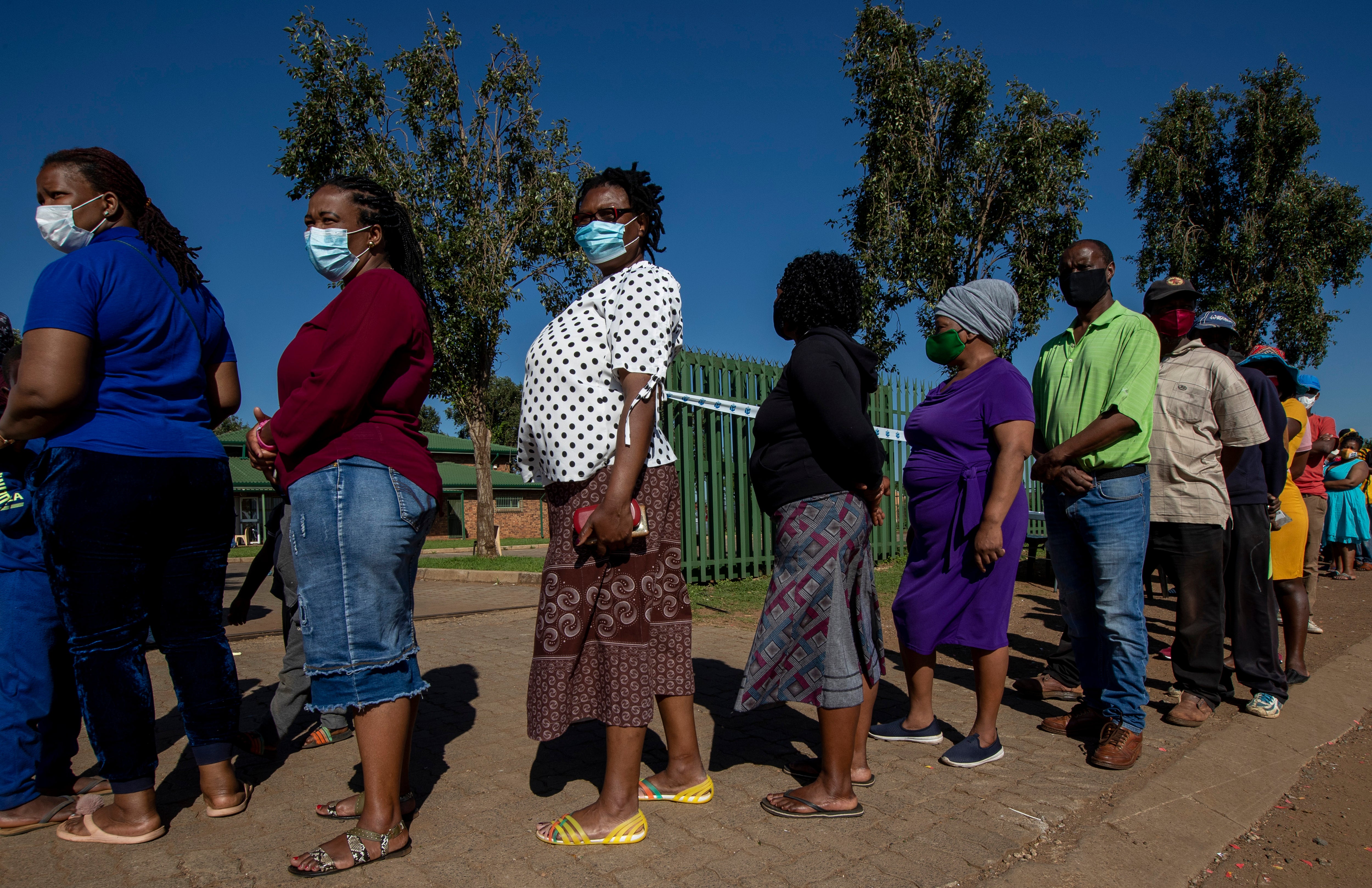South African municipal vote to gauge support for ruling ANC
South Africans are voting in local government elections that will offer an indication if support for the ruling African National Congress has rebounded after seeing its popularity wane in recent years

Your support helps us to tell the story
From reproductive rights to climate change to Big Tech, The Independent is on the ground when the story is developing. Whether it's investigating the financials of Elon Musk's pro-Trump PAC or producing our latest documentary, 'The A Word', which shines a light on the American women fighting for reproductive rights, we know how important it is to parse out the facts from the messaging.
At such a critical moment in US history, we need reporters on the ground. Your donation allows us to keep sending journalists to speak to both sides of the story.
The Independent is trusted by Americans across the entire political spectrum. And unlike many other quality news outlets, we choose not to lock Americans out of our reporting and analysis with paywalls. We believe quality journalism should be available to everyone, paid for by those who can afford it.
Your support makes all the difference.South Africans are voting on Monday in local government elections that will offer an indication if support for the ruling African National Congress has rebounded after seeing its popularity wane in recent years.
The municipal elections, which take place every five years, determine the composition of councils responsible for providing essential services like water, waste management and sanitation. Councilors, in turn, elect city mayors.
These are the sixth municipal elections since the end of apartheid in 1994.
The vote, the sixth since the end of apartheid in 1994, comes amid South Africa’s COVID-19 vaccination campaign, with some polling stations setting up adjacent vaccination centers to encourage voters to cast their ballots and receive a shot.
Campaigning has largely focused on the ANC's apparent failure to provide essential services cities and municipalities they govern. Compounding that is the national ANC government’s failure to ensure a stable electricity supply following rolling power blackouts last week.
The blackouts - as long as six hours per day - sparked anger across the country and saw various opposition parties trying to capitalize with pledges to resolve the electricity issue if elected.
Although unhappy with poor services in the Kempton Park area where he lives, Justin Mosuthwane said he was determined to cast his ballot despite expressions of apathy toward the vote by some South Africans.
“I know there are people who have decided not to vote, but because of the history of our country it is hard to forget how hard we have fought for our right to vote," said Mosuthwane.
Blacks were not allowed to vote under the apartheid regime.
South African President Cyril Ramaphosa cast his vote in the township of Soweto in Johannesburg and emphasized the nation's progress since overthrowing apartheid.
“As a country we have to be very proud that our democracy is growing and becoming more entrenched,” he said.
But his ANC party which has been in power since 1994, has been criticized for not doing enough at a local level to improve the lives of millions of poor South Africans. South Africans have struggled with an unreliable electricity grid for years, while adequate housing and sanitation remain major problems for many in Africa's most developed economy.
Johannesburg resident Rachel van Zyl said she'll use her vote to speak out.
“If you are upset about the way things are being run, the only way to have a say is to cast your vote," she said. “The service delivery is absolutely shocking. We pay a fortune for rates and taxes but the service delivery is ridiculous.”
In the previous municipal elections, the ANC lost control of Johannesburg, the country’s largest city and economic hub, the Tshwane metropolitan area that includes the capital city of Pretoria, and the Nelson Mandela Bay metropolitan area that includes Gqeberha, the city formerly called Port Elizabeth.
Those major cities are expected to be hotly contested again. The ANC's main challengers are the centrist Democratic Alliance party, the biggest opposition party and which runs the city of Cape Town, and the far-left Economic Freedom Fighters, who champion the plight of poor Black South Africans.
Among those permitted cast ballots ahead of Monday's vote was Archbishop Desmond Tutu, the anti-apartheid icon who turned 90 last month. Tutu and his wife Leah urged South Africans to exercise a democratic right that was denied to millions of Black people during apartheid.